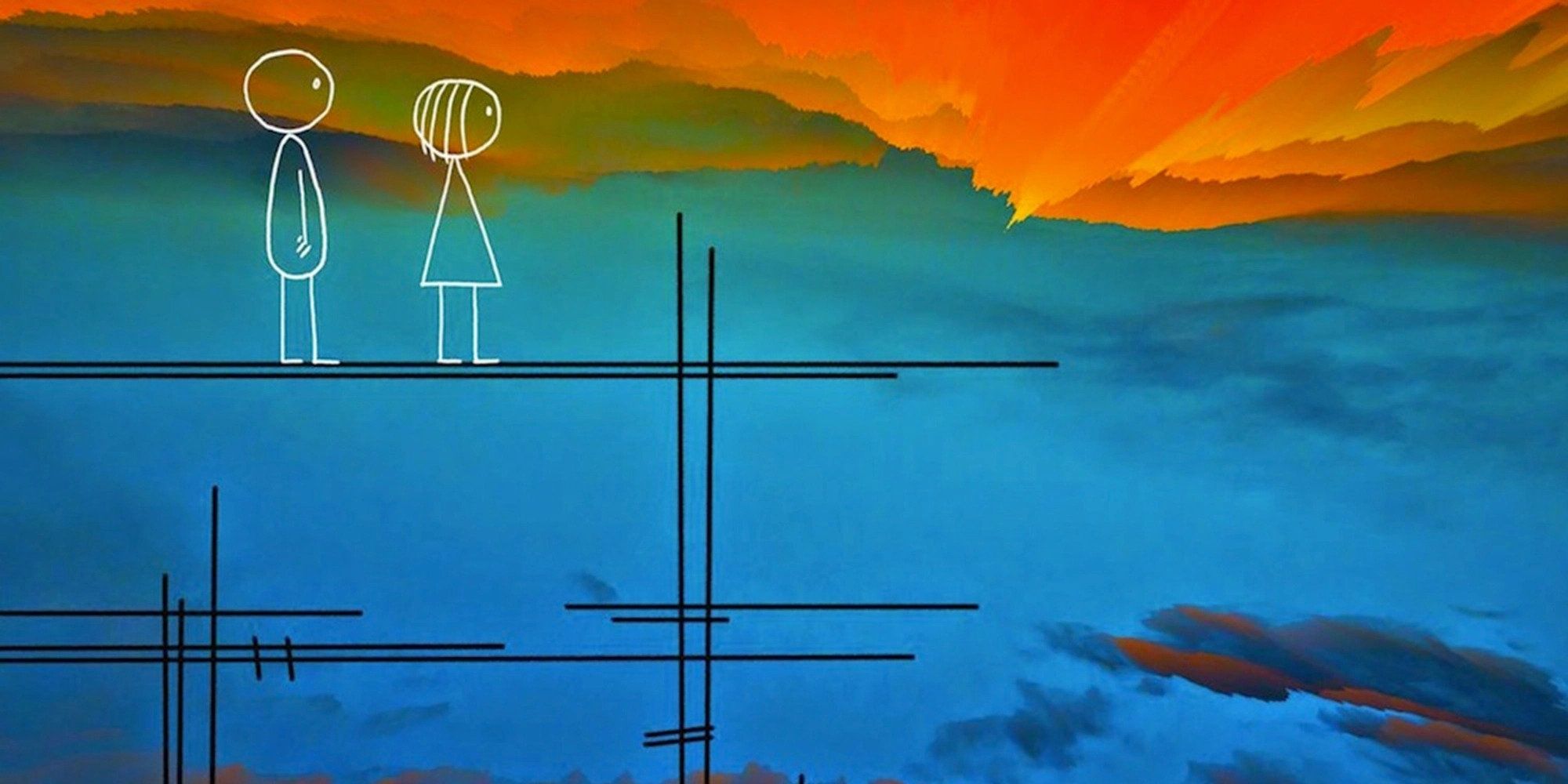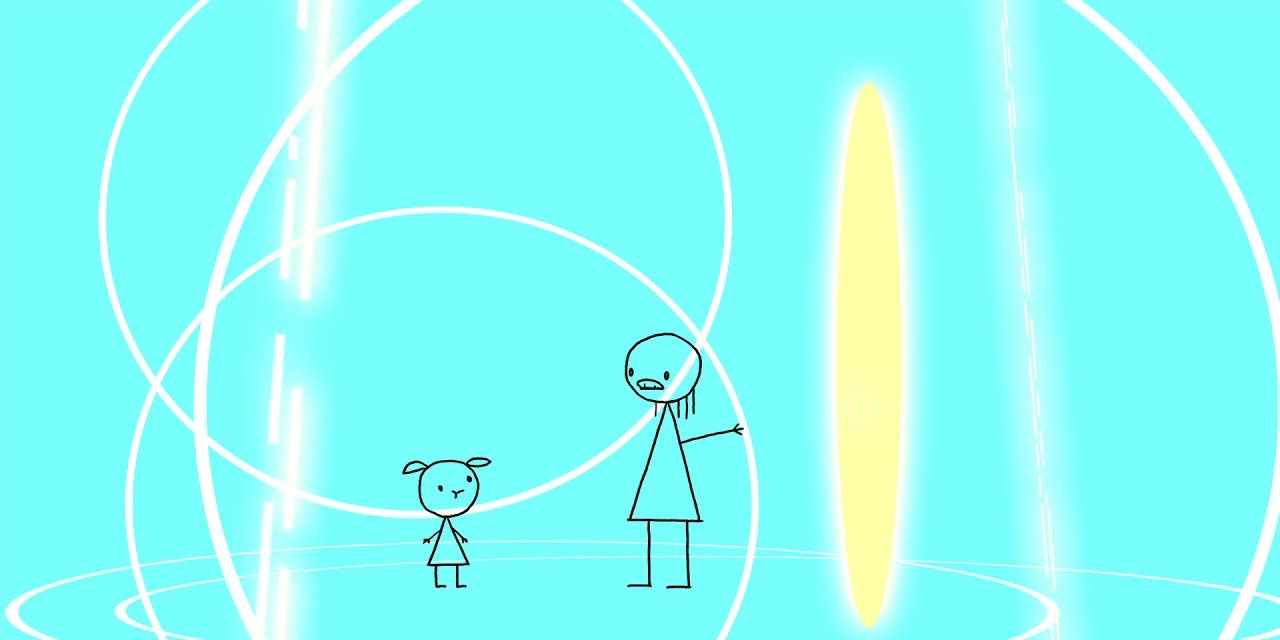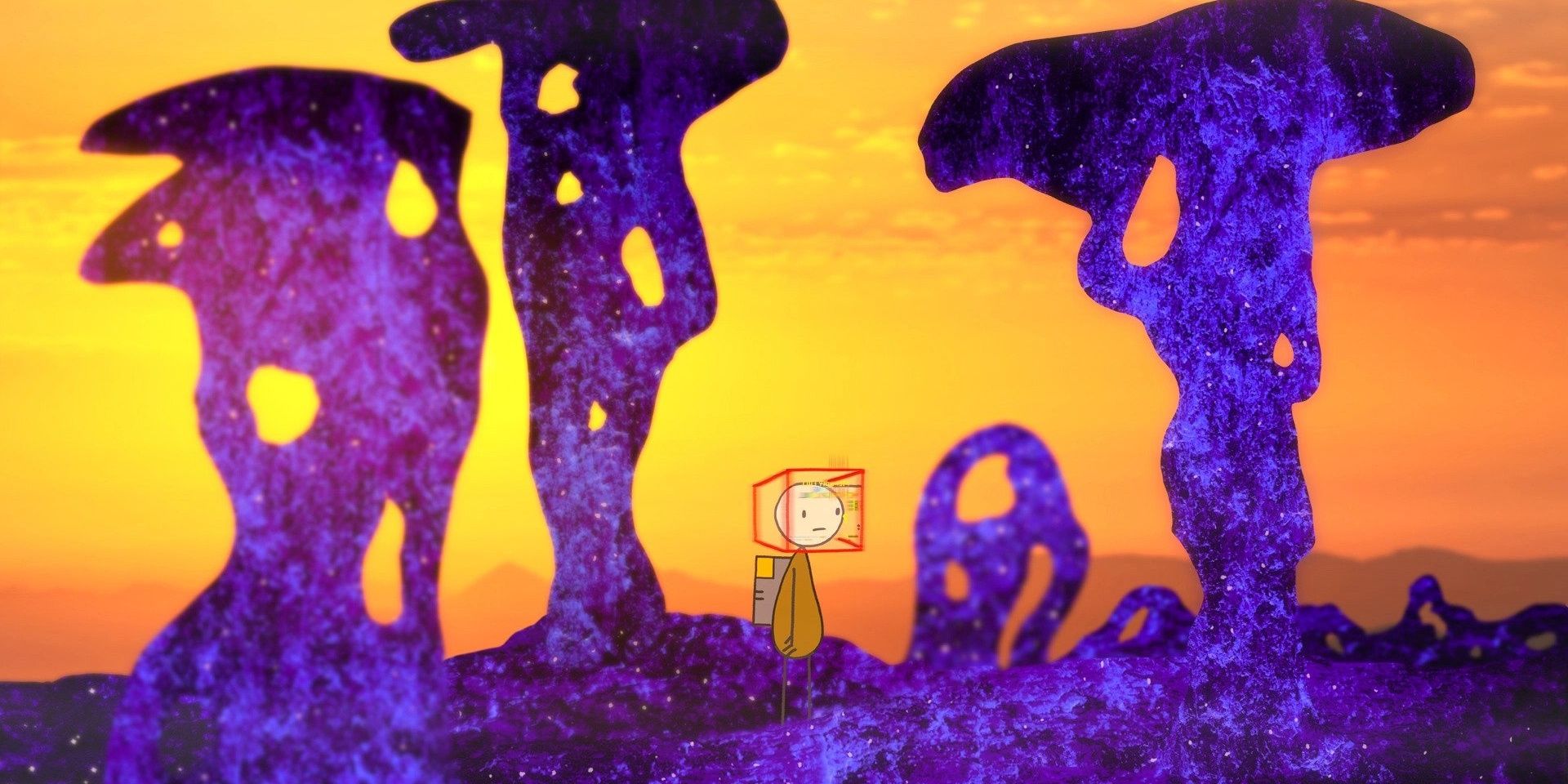So much of sci-fi cinema sells itself on expensive VFX, big-name actors, marketable IP, and boring retreads of existing stories, but none of that replaces the draw of a good idea. World of Tomorrow may not have an 8-digit budget or any movie stars, but what it does have are big questions and gripping answers.
The world of short films is unusual. It's the categories that the Oscars barely pay attention to, most people don't have a list of favorites, and many don't even gain recognition until they're adapted into full-length features. Some short films, however, master their genre in a way that many others haven't even come close to.
Don Hertzfeld is a singular talent in the animation world. His initial break with viral fame came in 2000, with his short film Rejected. It depicted a series of unhinged animated ads that were deemed unacceptable by the companies they were made to advertise, leading to the emotional breakdown of the artist. Rejected is the DNA of two decades of internet comedy. As the creator of one of the most influential pieces of internet content, Hertzfeld's career has only grown more ambitious. In 2012, he released his first feature film, It's Such a Beautiful Day, a masterful assault on the senses that interrogates the idea of memory and immortality. In 2014, he created the best couch gag in the history of The Simpsons for the 26th season premiere. Through unchecked futuristic absurdity, the opening of "Clown in the Dumps" is the best meta-commentary about the fate of the Simpson family, somehow inserted into the content itself. The next year, Hertzfeld put out his sci-fi opus, World of Tomorrow.
World of Tomorrow begins when a little girl named Emily receives a video call. She is greeted by a clone of herself from the distant future, who comes to teach her young pseudo-grandmother about what's to come. Emily III explains that the people of the future have begun uploading their memories into clones, allowing a consistent form of immortality. Together, they go on a brief tour of Emily III's memories. They meet a man who lives as an art exhibit, they see people of the future watching memories of the past, they watch Emily III find and lose love, and they discover that the planet Earth is doomed to end. As the end comes, Emily III seeks to retrieve a comforting memory, just to warm her artificially generated heart for her final days. Emily returns to her life, and it only gets more complicated from there.
A lot of Don Hertzfeld's work explores the concept of identity, especially through the idea of memory. The people of World of Tomorrow can't preserve their bodies, they can only continue their experiences through new ones. The people of the future are obsessed with immortality, so much so that many of them will undergo fates worse than death to avoid a natural end. There are countless new ways to live, from a consciousness inside a cube to a clone missing its identity, but living forever is a curse in almost every scenario. Emily III is nothing without Emily Prime's memories. She remembers Emily Prime's memory of the meeting they are having as the film goes on. It's a closed time loop, everything happens as it already has, and every decision is made in advance. It's hilarious, horrific, and wildly thought-provoking.
World of Tomorrow isn't just a glimpse of the future, it's a deeply grim condemnation of the present. It's a philosophical treatise on the obsession with the past, the inability to live a life untethered from daily mundanity, and the inherent wisdom of children. Winona Mae's performance wasn't scripted, Hertzfeld just recorded her playing and drawing and wrote the film around her chaotic lines. When Emily III leaves young Emily Prime with her advice, she just strolls off, as unburdened with the end of the world as she was when she picked up the phone. The story looks to the audience and drops some of the most harrowing concepts one could imagine, then challenges the viewer to carry on with a spring in their step.
World of Tomorrow is one of the most moving pieces of science fiction ever put to screen. Its bizarre digital art style, chaotic use of dialogue, and haunting experimental tone contribute to less of a story and more of an experience. Hertzfeld has spoken about his lack of interest in the sci-fi genre, pointing out that it can limit creators to the overdone subject matter. Flipping his critique on its head, Hertzfeld demonstrates that there are still incredible new ideas and executions in the world of science fiction for those creative enough to find them. World of Tomorrow doesn't look like any other work of brilliant sci-fi because it isn't like any other classic science fiction masterpiece. It's a singular creation that demands attention and proves that ideas are still the key to science fiction.



